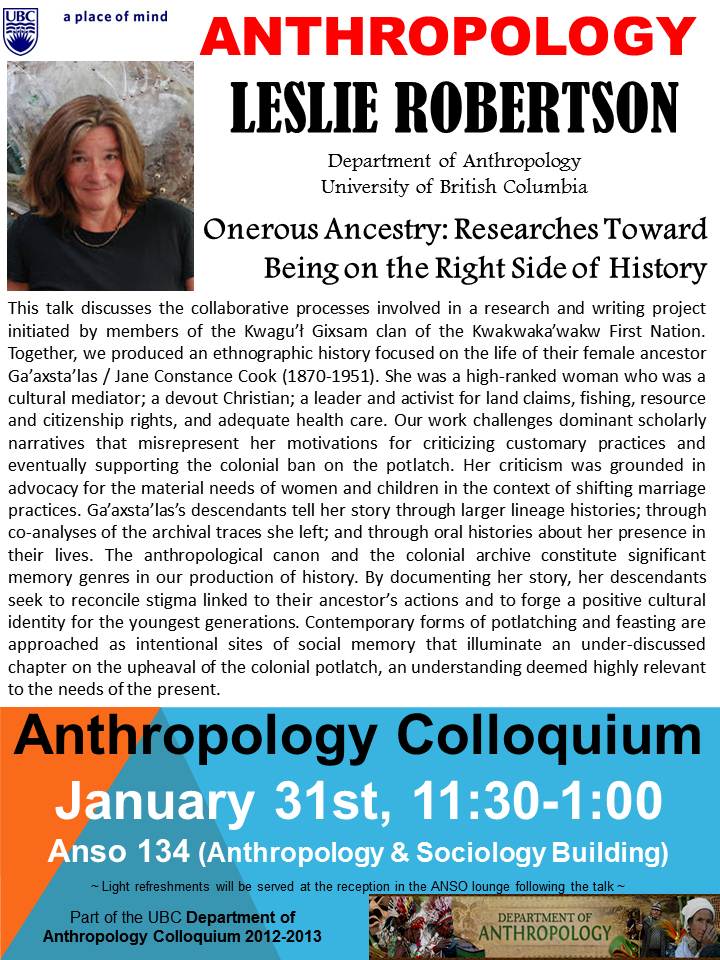Anthropology Colloquium is the department’s speaker series that invites a mixture of anthropologists from within and outside of UBC to present their research. This speaker series is scheduled throughout the academic year, typically with a lunch reception in the AnSo Lounge.
Onerous Ancestry: Researches Toward Being on the Right Side of History.


Anso 134, 11:30-1:00
Leslie Robertson
Department of Anthropology
University of British Columbia
Abstract:
This talk discusses the collaborative processes involved in a research and writing project initiated by members of the Kwagu’ł Gixsam clan of the Kwakwaka’wakw First Nation. Together, we produced an ethnographic history focused on the life of their female ancestor Ga’axsta’las / Jane Constance Cook (1870-1951). She was a high-ranked woman who was a cultural mediator; a devout Christian; a leader and activist for land claims, fishing, resource and citizenship rights, and adequate health care. Our work challenges dominant scholarly narratives that misrepresent her motivations for criticizing customary practices and eventually supporting the colonial ban on the potlatch. Her criticism was grounded in advocacy for the material needs of women and children in the context of shifting marriage practices. Ga’axsta’las’s descendants tell her story through larger lineage histories; through co-analyses of the archival traces she left; and through oral histories about her presence in their lives. The anthropological canon and the colonial archive constitute significant memory genres in our production of history. By documenting her story, her descendants seek to reconcile stigma linked to their ancestor’s actions and to forge a positive cultural identity for the youngest generations. Contemporary forms of potlatching and feasting are approached as intentional sites of social memory that illuminate an under-discussed chapter on the upheaval of the colonial potlatch, an understanding deemed highly relevant to the needs of the present. Represented as neither victim nor resistance hero in this revisionist history, the story of Ga’axsta’las poses questions about research and publication in community contexts where internal colonial debate is unresolved.


